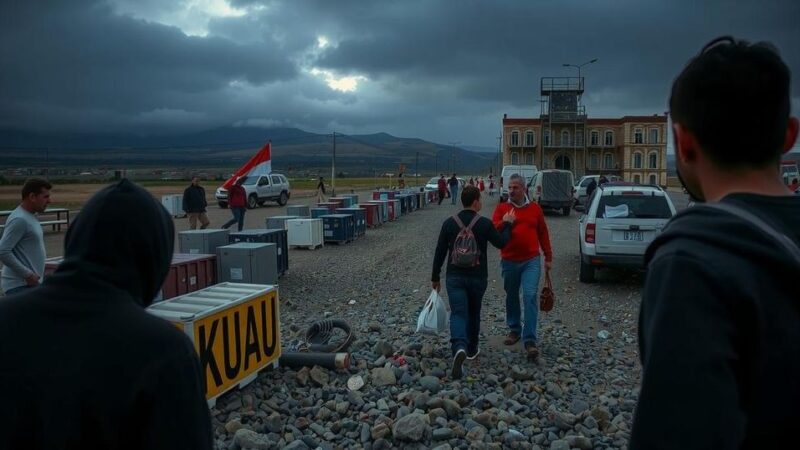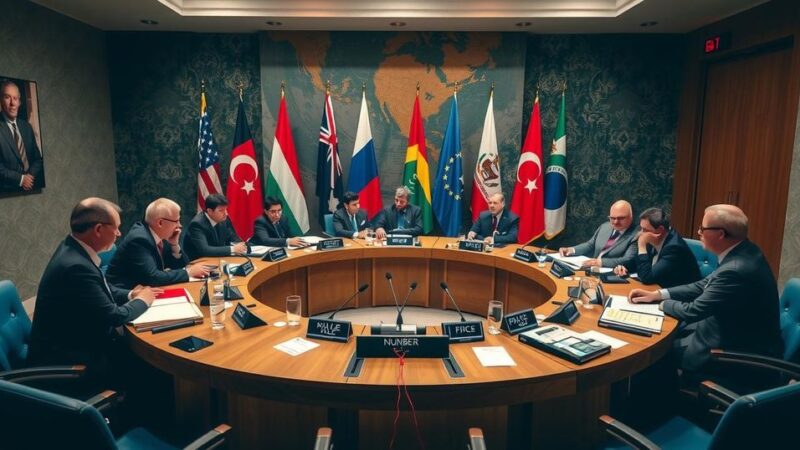The United Nations reports that over 10 million people have been displaced in Sudan due to conflict, prompting urgent humanitarian assistance. Meanwhile, Deputy Secretary-General Amina Mohammed is visiting West Africa to assess Sustainable Development Goals progress, and Côte d’Ivoire has joined a UN treaty for transboundary water management as part of collaborative efforts in the region.
In recent reports from the United Nations, the humanitarian crisis in Sudan has reached alarming levels, with over 10 million individuals displaced since the onset of conflict in April 2023. According to UN Spokesperson Stéphane Dujarric, this represents 20 percent of the nation’s population, with nearly eight million people remaining internally displaced and half of them being children. Furthermore, more than two million residents have sought refuge in neighboring nations, which also grapple with their humanitarian concerns. In response, aid organizations are striving to provide assistance, although they continue to encounter significant hurdles such as escalating violence, difficulties in access, and limited funding. Currently, humanitarian funding stands at only 30 percent of the $2.7 billion required for the year, highlighting the urgent need for financial commitments from donor countries. In a related UN activity, Deputy Secretary-General Amina Mohammed visited West Africa, starting in Senegal, to assess the region’s progress towards the Sustainable Development Goals (SDGs) and to foster collaboration with stakeholders. Her mission follows the recent SDG Summit aimed at reinvigorating efforts towards these global goals. During her meetings in Dakar, Ms. Mohammed emphasized the UN’s support for Senegal’s transitions towards more sustainable food systems and renewable energy initiatives. Plans for her subsequent visits to Guinea and Mali underscore the commitment to monitoring and facilitating SDG progress across the region. Additionally, Côte d’Ivoire recently signed a UN treaty that aims to enhance collaborative water management across borders, becoming the 53rd signatory to the 1992 UN Water Convention. This development is significant as it reflects a growing recognition of the need for transboundary cooperation, especially in the context of increasing water scarcity and environmental challenges faced by the region. Cô te d’Ivoire’s inclusion as a party to this convention is seen as a progressive step towards fostering peace and sustainable development in water resource management in Africa. With a rapidly growing population, Côte d’Ivoire is under pressure to effectively manage its water resources in the face of pollution and uneven distribution, making this treaty particularly pertinent to their long-term development plans.
The situation in Sudan has reached a critical stage marked by widespread displacement and humanitarian needs due to ongoing conflict. UN agencies and humanitarian workers are actively engaged in relief efforts, yet they face numerous obstacles in delivering adequate aid. The challenges also extend to neighboring countries, where significant populations of refugees are affecting local resources. In West Africa, the visit of UN Deputy Secretary-General Amina Mohammed aims to strengthen the implementation of the Sustainable Development Goals, which face various regional challenges, including poverty alleviation, environmental sustainability, and economic development. This mission emphasizes the UN’s commitment to partner with member states to enhance progress towards these goals. Furthermore, Côte d’Ivoire’s accession to the UN Water Convention showcases a growing trend among African nations to prioritize collaborative water management strategies, essential for addressing transboundary challenges posed by shared water sources amidst climate change and increasing demand.
In summary, the recent developments highlighted by the UN portray a dire humanitarian situation in Sudan, necessitating immediate financial assistance for ongoing relief efforts. The West African mission led by Deputy Secretary-General Amina Mohammed signals a concerted effort to enhance SDG implementation amid various regional challenges. Côte d’Ivoire’s commitment to the UN Water Convention reflects a broader regional recognition of the importance of collaborative water governance in managing scarce resources effectively. These actions underscore the urgent need for international support and cooperation to address pressing humanitarian and developmental issues across the region.
Original Source: news.un.org






